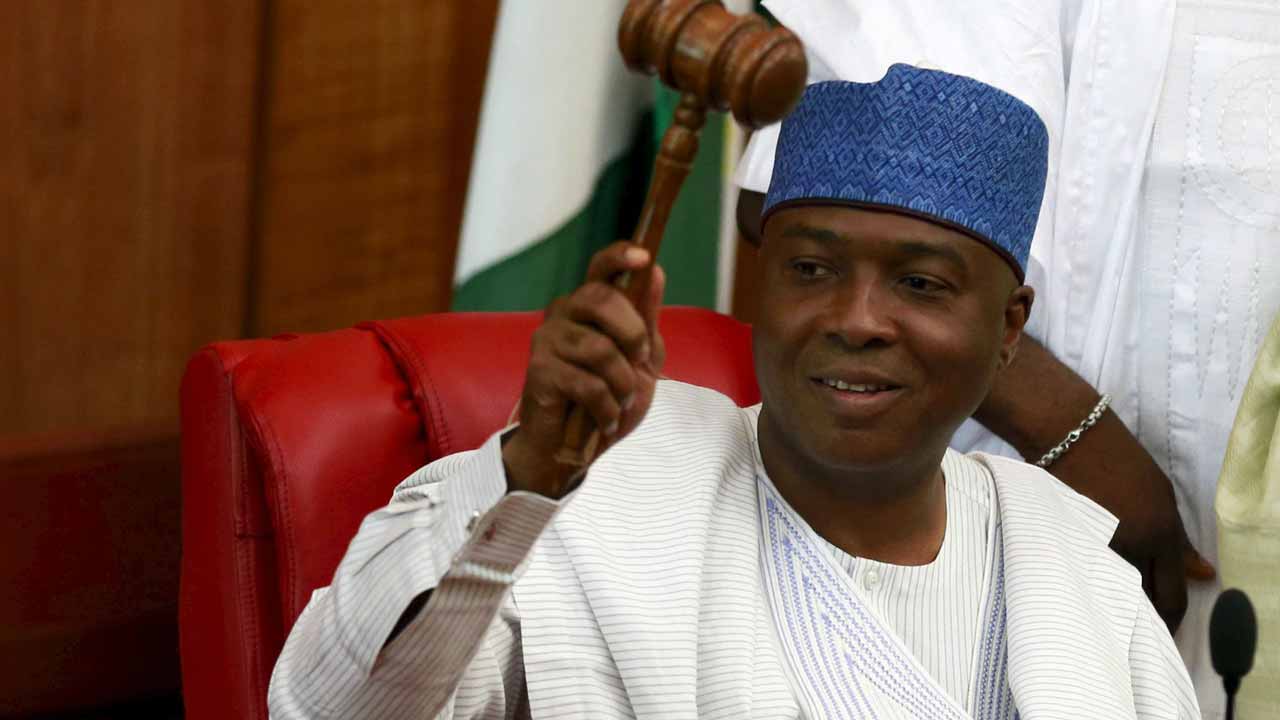- Magu’s Rejection Not Based on DSS Report
Senate President Bukola Saraki has said the Senate did not reject the acting Chairman of the Economic and Financial Crimes Commission, Mr. Ibrahim Magu, because of a damning report issued by the Department of State Services which questioned Magu’s integrity.
Saraki said this in an interview with TVC News in Morocco where he attended an African summit on climate change and food security.
The Senate President was reacting to a claim by a former Senate Majority Leader, Ali Ndume, who said last week that it was hypocritical of the Senate to allow Saraki to continue in office because he was in court to defend corruption allegations.
Ndume had argued that the Senate should not have rejected Magu based on unproven allegations.
Saraki said, “You are jumping into conclusion that he (Magu) was rejected because of the accusation. I don’t think there was anywhere we said he was rejected based on accusations.
“We have nominees that come all the time with different issues. Two weeks ago, we screened the Chief Justice of Nigeria and he scaled through.
“Now the EFCC chairman came and he did not pass the screening. Someone else will come and may pass. This is our constitutional role and I don’t think we should personalise or politicise this.”
The Senate President also denied reports that the current face-off between the Senate and the Comptroller-General of the Nigeria Customs Service, Col. Hameed Ali (retd.), was evidence that the Senate was being too harsh on the executive.
He said the executive arm of government must learn to consult with the legislature more often as this, according to him, is the best way to get things done.
Saraki added, “I know that as the parliament, which represents the people, some of these far-reaching decisions have to be made and there is a need for a wider consultation and that is what democracy is about. If you don’t want democracy, you can sit in your office and announce anything.
“Nobody is saying we have a monopoly of what is right but there must be consultation. We get feelers from the people and at a time that the economy is biting, we have to be very sensitive to some of the issues we face. So, all we are saying is consult more.”
But the Muslim Rights Concern on Saturday alleged that the Senate did not confirm Magu because the lawmakers were planning to kill the EFCC.
MURIC’s director, Ishaq Akintola, in a statement said, “Senate has shown that it is not fighting corruption. On the contrary, it is fighting for corruption by rejecting a firebrand anti-graft boss, it has exposed itself as an institution with skeletons in its cupboard.
“The Senate has demonstrated its readiness to kill the EFCC and any other anti-corruption agency that has the temerity to investigate its members.”
Meanwhile, the Senate has said it is preparing its communication to President Muhammadu Buhari on the rejection of Magu.
Speaking to one of our correspondents on Friday, the Chairman, Senate Committee on Media and Public Affairs, Senator Sabi Abdullahi, said the lawmakers would soon transmit their letter to the President.
He said, “They (Presidency) should be expecting it; it will come. People should be fair to us. That is not how things are done. When one sits for an examination, one doesn’t get the result same day. When did we do it (reject Magu)?
“There are processes. Of course, they will say they are waiting on us and we have to process it. We should always allow people to do their jobs. There will be communication and it will go.”
Reacting to the criticisms against the Senate from a section of the public on the issue, Abdullahi pointed out that the lawmakers were honest with their decision.


 Naira3 weeks ago
Naira3 weeks ago
 News4 weeks ago
News4 weeks ago
 Naira4 weeks ago
Naira4 weeks ago
 Naira3 weeks ago
Naira3 weeks ago
 Jobs3 weeks ago
Jobs3 weeks ago
 Travel3 weeks ago
Travel3 weeks ago
 Naira3 weeks ago
Naira3 weeks ago
 Investment4 weeks ago
Investment4 weeks ago





























